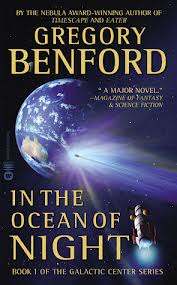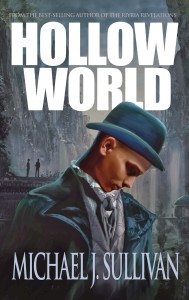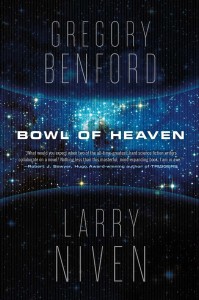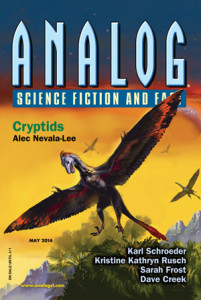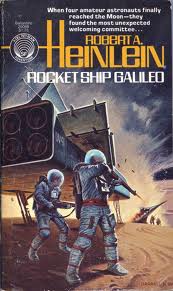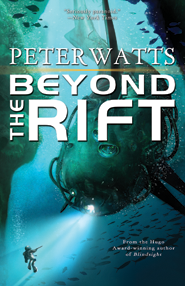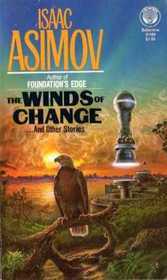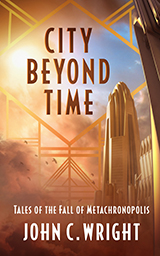 City Beyond Time Tales of the Fall of Metachronopolis
City Beyond Time Tales of the Fall of Metachronopolis
John C. Wright
Castalia House, 168 pgs.
ebook $4.99
Okay, class, wake up. Put the phones and tablets away. You can text, Facebook, and download porn on your own time. Which brings us to today’s topic: time. Yes, Simone, I realize that a great deal of time has passed since I last posted here. This isn’t my only blog, you know. Have you kept up with the reading for the others? I thought not.
As I was saying. I’ve been attempting to redeem my time in these evil days, and one of the ways I’ve been doing that is with ebook apps on my phone. Anytime I find myself cooling my jets, I take advantage of the opportunity to get some reading done.
I began reading a collection of essays by John C. Wright not too long ago and was really impressed with both what the man had to say and how he said it. I’m still reading the book. It’s one I want to savor rather that rush through. I’ll post a review at some point when I’ve finished, probably at Adventures Fantastic.
Anyway, I decided to see if Mr. Wright’s fiction was as good as his nonfiction. I’d heard positive things about his work for a number of years now. I decided to start with City Beyond Time. It was short, which is always a plus when reading on a phone. And time travel is one of my favorite subgenres of science fiction.
City Beyond Time is a combination short story collection and novel. The setting is Metachronopolis, a city at the end of time controlled by the Time Wardens. They manipulate history for their own ends. This is nothing new in science fiction. Poul Anderson’s Time Patrol stories are probably the high water mark for temporal police, but the concept goes back to the pulps.
Only these time cops aren’t exactly the good guys. They’re more like the cops you find in a noir novel by Raymond Chandler. Shady and on the take, with an agenda of their own.
There is one character who shows up in the first and last stories, a private eye named Jake Frontino. He’s from the 1930s. (More Chandleresque stuff; always a good thing.) The initial and final story are tied together in some subtle ways.
No, Martin, Chandler hasn’t reached his expiration date. His work has passed the test of time.
And speaking of time, in “Murder in Metachronopolis”, the lead story, Jake has to solve a murder where time travel plays a role in the murder. This was a creative an innovative story where the tale isn’t told in chronological order. Rather the sections are mixed to provide a greater depth to the narrative.
“Choosers of the Slain” concerns a defeated warrior king in some future or alternate world. He’s about to make his final stand, a stand from which he won’t emerge alive, when a young girl appears and tries to convince him to come with her to the future.
“Bride of the Time Warden” was one of the most riveting tales in the book. The potential wife of a Time Warden living sometime in the 20th century is asked to spend the night alone in the library of the family mansion. It’s a ritual that all potential brides have to pass through before they can marry into the family. During the night she meets her future self, a bitter woman who tells her not to marry this man. Then she meets her son who asks her to please marry him. This was one of my favorites.
I’m sorry, Simone, what did you say? Yes, it did appeal to the romantic in me.
In “Father’s Monument” a son struggles to honor the dying wish of his estranged father and build a monument so visitors from the future can find the father. All the son has to do is believe the father’s story…
“Slayer of Souls” is a bit of Lovecraftian horror dressed up in time travel. It’s about a homeless man who is given a book by a book vendor. A book he shouldn’t open.
Henry Kuttner is one of all time favorite authors. His story “Happy Ending” (reviewed here) is a time travel story that is told in three sections, with the events in each section preceding the events of the prior section. It’s a technique I’ve not seen used often.
Wright takes the concept and runs with it, scoring a touchdown with “The Plural of Helen of Troy”. In this one Jake is working a case he already knows the outcome of, except where the Time Wardens are concerned, no outcome is certain.
Here’s a quote from that story that really stuck with me:
But how can you have hope in this city? Hope comes when you have an unknown future waiting like a Christmas gift, shining in its pink-bowed wrapping paper, and every tomorrow is a new surprise to open.
Hope is when you can change your future. But if the Time Wardens can step through a crystal into your tomorrow, and they can change your tomorrow, but you cannot, then all the gifts have already been opened and all the toys are theirs.
There’s a deep undercurrent of philosophy in these stories. They aren’t simply adventure tales or clever little time paradoxes or mish-mashes of historical figures. While some the stories in City Beyond Time contain those things, they also transcend the tropes of time travel and deal with some pretty serious issues. The relationship between father and son, the objectification of women, and the role of free will in a person’s life to name a few.
These stories and the overarching narrative that contains them is science fiction for people who think and feel on a deep level. I highly recommend City Beyond Time. It’s one of those books that’s all too rare these days, one in which the rereading is every bit as good as the reading.
And speaking once again of time, class, we’re out of time. So for our next meeting your assignment is to write a five page paper on the significance of the private eye trope in City Beyond Time, with emphasis on how that trope is applied to 1950s movie icons.
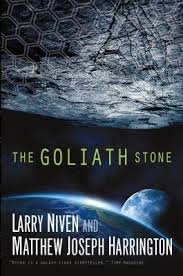 The Goliath Stone
The Goliath Stone

